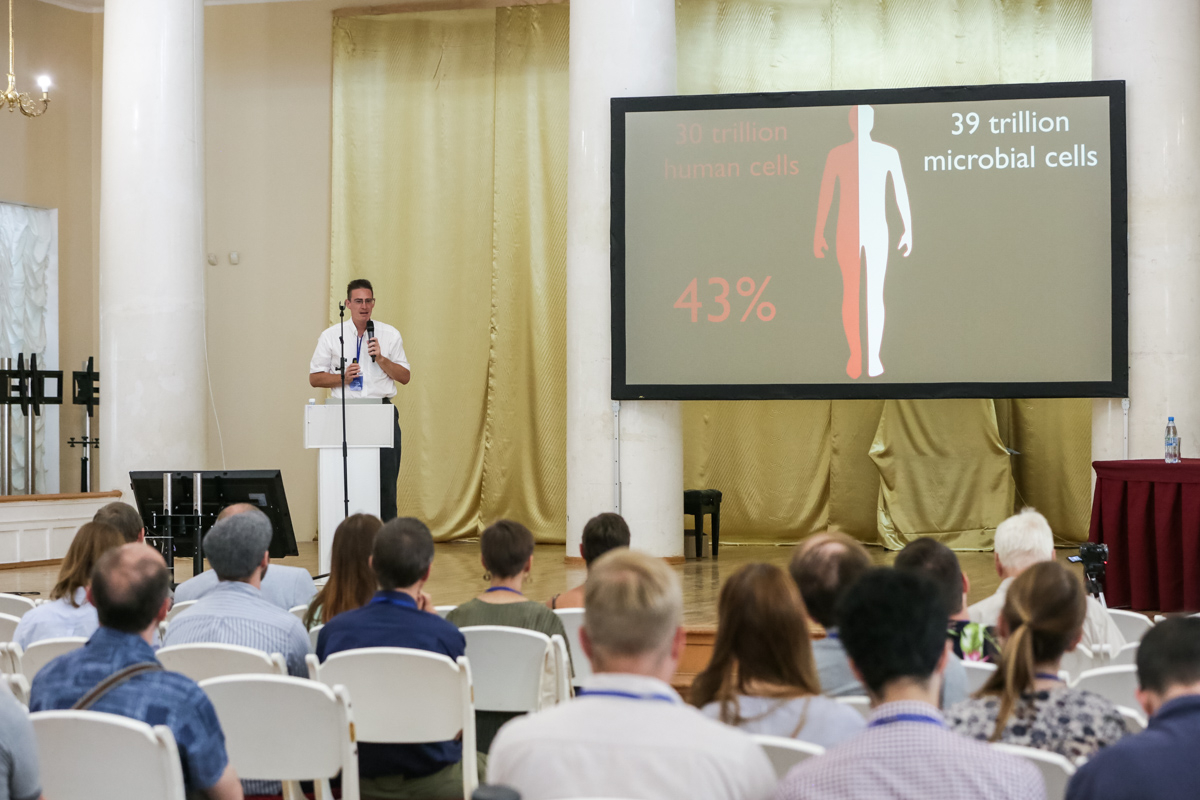The second international conference on bioinformatics is being held at St Petersburg University

The second international conference "Bioinformatics: from algorithms to application" (BiATA 2018) has started in St Petersburg University.
For the second consecutive year, St Petersburg University has become a platform for a meeting of software developers to analyse modern biological data and scientists - suppliers of these primary data from around the world. "The experience of last year's conference shows that such small-size scientific events help "mathematically minded” people understand what tools researchers need in the field of life science. During these events biologists find intelligent assistants for a complicated job of analysing huge amounts of data. Thanks to BiATA 2017 new contacts were established, which subsequently resulted in new projects," said Professor of St Petersburg University Alla Lapidus, Chairperson of the Conference Subject Committee. She is the Deputy Director of the Centre for Algorithmic Biotechnology at the Institute of Translational Biomedicine, St Petersburg University.
The topics of the conference papers are extensive: from studying the intestinal microorganisms and searching for new types of viruses to amending the human genome.
The conference was opened by Rob Knight, an outstanding microbiologist, professor of the University of California in San Diego, USA, who was one of the first to study microbes inhabiting the human body that made a significant impact on its health. According to recent research, the human body consists of about 30 trillion cells, but apart from them, the human body consists of a colony of 39 trillion different microorganisms. Researchers also compared human DNA and microbes residing in the body. "It turned out that there are about 20 thousand genes in our body, while there are up to 20 million microbial ones. Therefore, in order to improve the efficiency of our body, it is so important to study our microbiota, which is 99% of the human body. To do that, we have to take into consideration the fact that human bacteria constantly changes throughout life from the moment of our birth, depending on a variety of factors including conditions of the environment," said Rob Knight.
At St Petersburg University, the American scientist dedicated his speech to the interconnection of microbiomes of the surrounding world and human health. Professor Knight told the audience about the large-scale project "Human Microbiome", in which American scientists investigate the microbiota of tens of thousands of Americans and people from other countries. Rob Knight is sure that in the future this will help to better understand how microbiomes affect human health, and treat various diseases.
On the second day of BiATA 2018, Mikhail Gelfand (member of the European Academy, Deputy Director of the Institute for Information Transmission Problems of the Russian Academy of Sciences), Timofey Ermak (Biocad), and Evgeny Kunin (leading researcher of the National Centre for Biotechnology Information and the head of the evolutionary genomics group at the National Institute of Health, USA) gave public lectures.
As in the past year, conference participants will have a unique opportunity to learn how to work with advanced software tools. On July 19, the last day of BiATA 2018, Professor Rob Knight and Amanda Birmingham, a colleague from the University of California at San Diego, will hold a workshop on the QIIME software package, Quantitative Insights Into Microbial Ecology, for microbiome analysis and on the "Human Microbio" project used by the researchers. In order to get new skills participants of the seminar will only need laptops, since QIIME is in the public domain and can be used by scientists all over the world.

